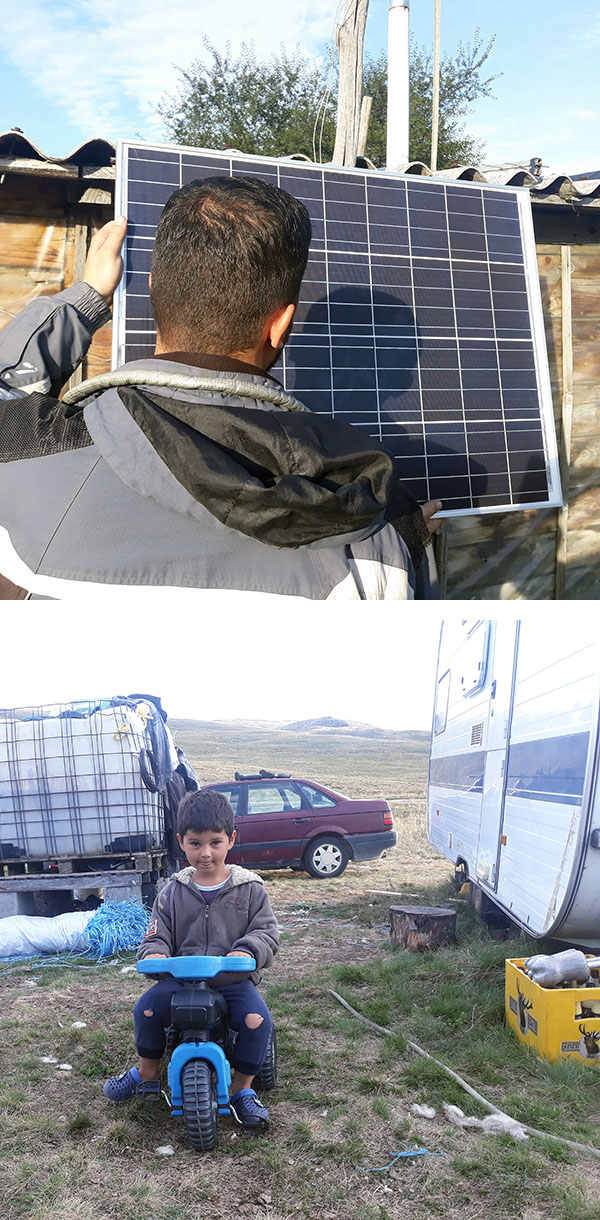Stories of Change

Top: installation of a mobile solar panel in Morine. Bottom: The Brenjos' youngest son, Vladan. Photos courtesy Regional Development Service.
Portable solar panels mean electricity and easier living for families in Herzegovina
Morine is a hut settlement high in the mountains of the Herzegovina region in Bosnia-Herzegovina. For centuries, people in this area have been practicing a nomadic lifestyle and are well-known for cattle breeding and producing cheese.
The roughly 20 families in Morine are dedicated to preserving their tradition of cattle breeding far from industrialized farms. But in order to make this happen, they face a lot of sacrifice and hardship. A family would usually spend around nine months each year in the huts that don’t have electricity because the area is remote and quite far from the grid. People retreat to towns only in the winter, when the weather is too severe to stay in Morine.
The Brenjos are one of the families in Morine. The family consists of parents Miodrag and Radivojka and their three children: Dejan (17), Aneta (13) and Vladan (5). The Brenjos earn their living by breeding cows and sheep and producing a special type of cheese, which they sell in Sarajevo and western Herzegovina. As part of the CWS-supported Renewable Energy Technologies program, the Brenjo family received a mobile solar panel, which enables them to access electricity. Mobile solar panels are an innovative model of solar panels, since they are smaller and are partially portable. Most importantly, they can be uninstalled in the winter when the families leave their huts and cottages in the Morine settlement due to the harsh winter conditions.
Radivojka said that their everyday life became better once they received the mobile solar panel: “Now, I can plug in the fridge and preserve milk inside. We are even considering buying some smaller size specialized fridge for milk to ease the production.”
For Miodrag, the most important benefit is having electricity in the evening. “It’s so hard, especially when it gets dark so early. We were restricted from so many things. Now we can listen to the radio. We’ll try to get a TV next year, as well,” he explained. This would finally allow 5-year-old Vladan to watch cartoons like other children do. “The most important thing is that our life became less challenging. It is much easier to perform our job now. We can even plan to introduce some new things in our work, which was not possible before.”
“A big thank you to all of those who helped not only my family, but all families in this settlement,” he added.
